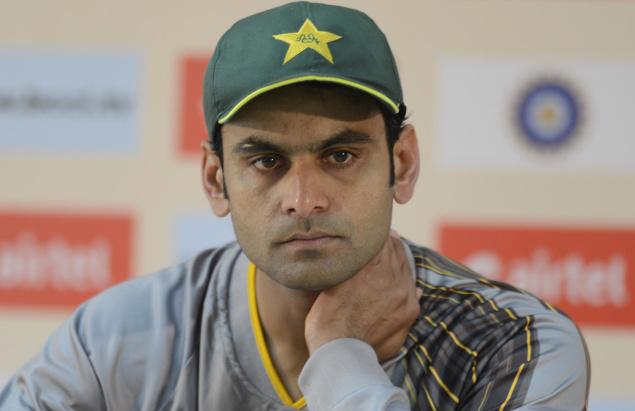MUMBAI, (Reuters) – All-rounder Mohammad Hafeez has become the second Pakistan cricketer to be banned from bowling for 12 months today after his action was found to be illegal by the International Cricket Council (ICC) for the second time since November.
Former Pakistan captain Hafeez was initially reported after the first test against New Zealand in Abu Dhabi in November and was subsequently banned after an independent analysis found his action to be illegal.
He was cleared to bowl in April after changing his action but the part-time off-spinner was again reported by match officials for a suspect action during last month’s test against Sri Lanka in Galle.
“Hafeez is entitled to appeal any procedural aspect of an independent assessment that has led to this automatic suspension,” the sport’s governing body said in a statement.
“However, only after the expiry of this one-year period will he be entitled to approach the ICC for a re-assessment of his bowling action.”
Pakistan paceman Shabbir Ahmed was the first cricketer to be banned from bowling for a year in December, 2005 under the ICC regulation, which serves an automatic 12-month ban on a player whose action is found illegal twice within a two-year period.

Hafeez missed the third test against Sri Lanka in Pallekele to get his action tested in the southern Indian city of Chennai but returned to play the first two one-day internationals, taking four wickets in the opening match and two in the next.
“The assessment revealed that Hafeez’s elbow extension exceeded 15 degrees while bowling and, thus, he employed an illegal bowling action,” the ICC added.
Hafeez has also been in good form with the bat and scored a century to go with four wickets in a man-of-the-match performance in the first ODI at Dambulla.
Hafeez’s compatriot Saeed Ajmal was also banned in September and underwent corrective measures to fix his action before being cleared to bowl again in February.
A number of other off-spinners Sachithra Senanayake (Sri Lanka), Kane Williamson (New Zealand), Prosper Utseya (Zimbabwe) and Sohag Gazi (Bangladesh) were also reported last year as the ICC tried to rid the game of bowlers with questionable actions.










